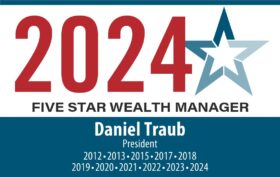In sync with you, in sync with the markets
Sign Up for Our Email List
Tempo Financial Advisors, LLC
75 Second Ave, Suite 605
Needham, MA 02494
Phone: 508-655-7827
Email: info@tempoadvisors.com
© 2024 Tempo Financial Advisors, LLC

How You Can Avoid Investment Fraud
February 2009
In the wake of what appears to be the biggest investment fraud in history, perpetuated by famed investor Bernie Madoff, it is important to know how to make sure this will never happen to you. As with many things in life, a little common sense will go a long way. Here are some rules to follow:
How can you avoid this? Only invest where you will receive a valuation from an independent third party at least quarterly. As a Registered Investment Advisor I manage assets. I do not, however, possess the funds. The money is held at firms such as Fidelity or TD Ameritrade. My clients certainly receive statements from me each quarter on my letterhead, but I am not their only source of information. Fidelity and TD Ameritrade send them monthly statements and trade confirmations. They can also use the internet or call the custodian anytime to view their account value and holdings.
I do feel sorry for that retired couple in Florida who had their entire $1mm nest egg invested with Bernie Madoff, but the bottom line is they violated every one of the rules above.
Happily, it is easier than ever to gain access to many alternative investments (commodities, long/short funds, market neutral funds, currency funds, etc) previously unreachable by the average investor. More and more alternative mutual funds and exchange traded funds (ETFs) are available today that were not available just five years ago. Most investors would be better off sticking with them.
Daniel J. Traub is president of Tempo Financial Advisors, LLC and can be reached at dtraub@tempoadvisors.com
Return to Top
Return to Commentaries